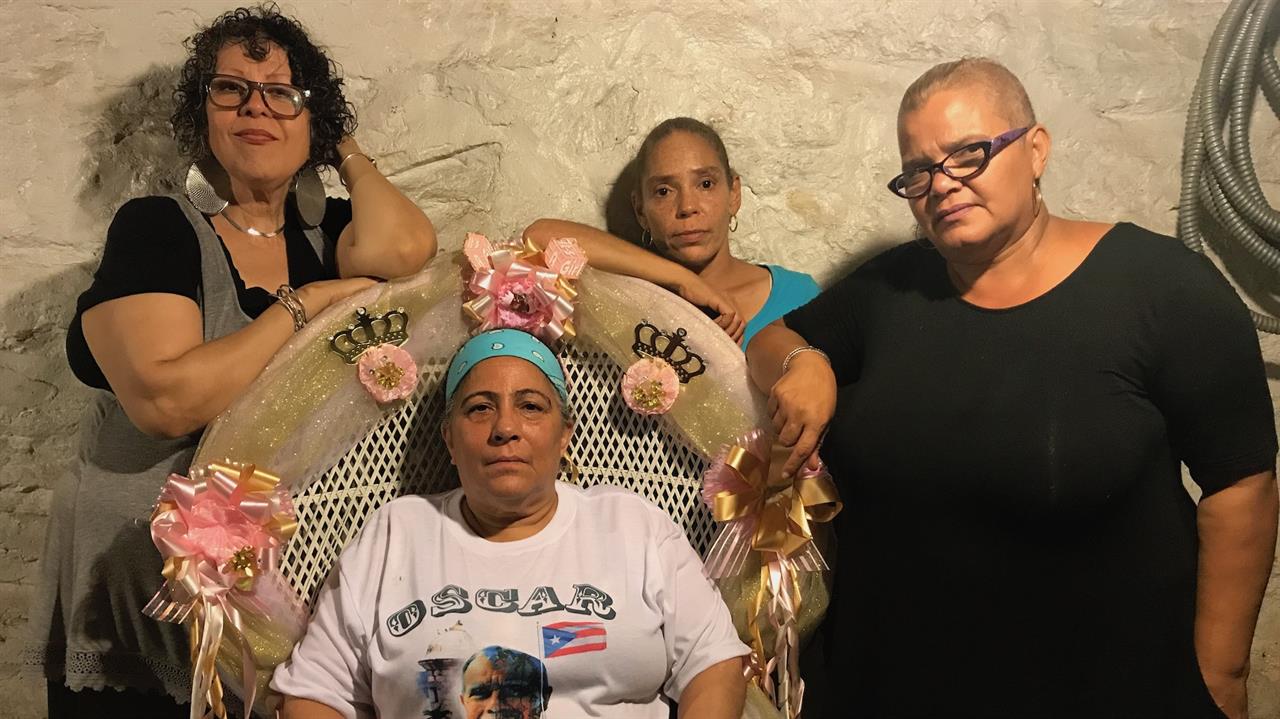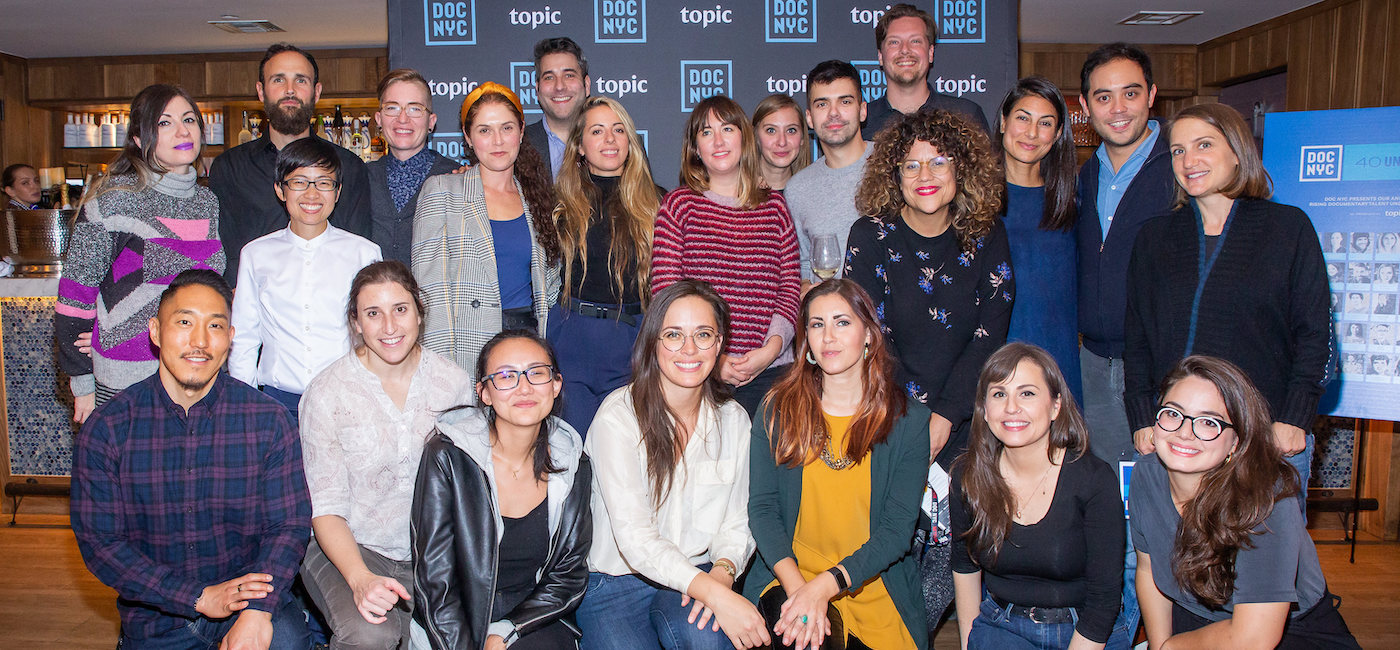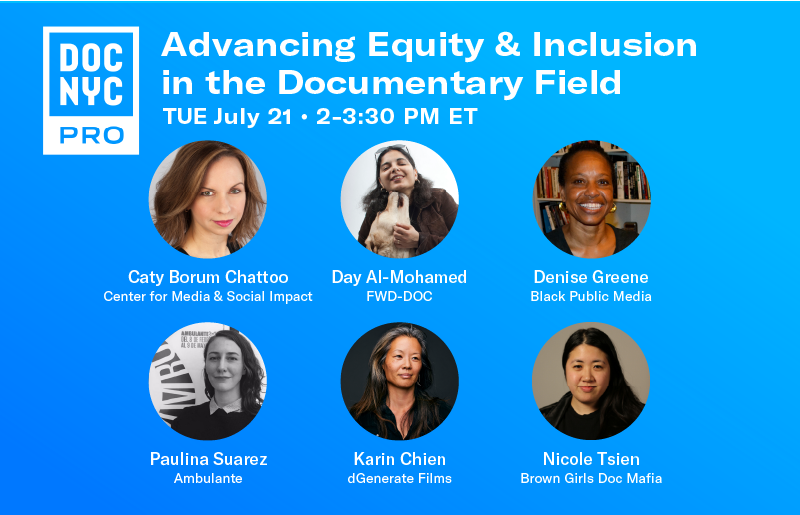Perdida: Rediscovering the History of Mexican Cinema

In charting the history of her family in the film Perdida, director Viviana García Besné also created a cinematic essay on the history of Mexican cinema. In fact, it seems nearly impossible to separate those two stories. As a scion of the Calderon family of movie producers, now best know for their creation of the sexploitation Filcheras subgenre of Mexican cinema, Garcia Besne had kept the legacy of her family’s scandalous films at a distance while trying to establish herself as a filmmaker. But in making Perdida, García Besné unraveled a story that is almost Rashomon-like in its retelling, where competing versions of history are often more different than alike. Following the screening of Perdida at DOC NYC on Sunday, which was co-presented with Cinema Tropical, DOC NYC Executive Director Raphaela Neihausen spoke with García Besné, who also took questions from the audience.
DOC NYC: The film has such an epic quality, how much it covers of the history of Mexican cinema and your own family’s history. How did you get started, how did you decide that you were going to make this film?
Viviana García Besné: It took us seven years, my husband and myself. We always say that if we knew how much work it was going to be we never would have started it, because it turned out to be very big. We spent all of our money on it. But I think it was bigger than me and my husband because the story was always like, “Come and look for me.” We were always discovering amazing things, and we still are discovering things. I think this is a thing that changed my life, because it changed the way I related to my family, and the way I related to films.
DOC NYC: How did your family feel when you were starting to uncover the archives, and go into them?
García Besné: At the beginning they didn’t understand why I was doing it. Somebody knew a little bit, and then another person knew a little bit, it’s like a puzzle. Nobody in the family knew the whole story. Everybody was okay, but my great uncle wasn’t when he realized I went into his vault and took Vampires and Sex. I showed him the movie, and he denied it. He said, “Where did you find the film? That film is lost.” After many years, he’s not running the business anymore. He’s 94 years old. A few months ago Vampires and Sex premiered at the Azteca theater in Mexico City. I was very happy to see that my uncle is still getting cinemas packed. It was full of people.
Audience: What does the business consist of now?
García Besné: There is no business. My family owns a theater in Ciudad Juarez that is closed. As you know, Ciudad Juarez is very violent now. They have the films. The business now is that people still want to see these films. There are many tv channels that buy and show the films.
Audience: Is Perdida showing in Mexico?
García Besné: Yes, and to my surprise, people respond to it very well. The thing is, my great-uncle has a very particular way of speaking, and that is lost with the subtitles. But in Mexico everybody is laughing during the screening, and I always wanted him to sit there and experience the documentary with the audience so he could realize that people like him, because he thinks that nobody likes him. So I’m still hoping that I can get him into the theater so he can experience his story with more people.
DOC NYC: Did your grandmother and Ricardo Montalban meet? It’s such a love story.
García Besné: It is. For me it was such a great honor to meet Don Ricardo. I interviewed him with my sister, and when Ricardo saw us–he was very sick. He went to his house just for the interview, and then he went back to the hospital. And when he saw us, he said, you could be my grandchildren. We were very moved. We told that to my grandmother and after that she showed me pictures of Ricardo. Ricardo died and my grandmother died months after that.
DOC NYC: That amazing vault that we see, is it still locked up with all of the films?
García Besné: Yes, it is. At some point, my great uncle gave most of his film to a cinema, and then the cinema was burned down in the 1980s, and he lost 80% of his films.
Audience: I was wondering if you know how Luis Buñuelwas producing his films?
García Besné: Yes, thank you for asking that. I love art film, and before I saw the films of my family, I saw all the films of Buñuel. I have a lot of appreciation for art film, and I didn’t have any appreciation for popular film. But then I understood that, thanks to that popular film, Buñuelwas able to come to Mexico and work with these amazing crews who could take care of everything and were willing to work well. Buñuel landed in a very soft environment that allowed him to make his beautiful films.
Audience: Did you know that your great uncles were producers before you decided to become a filmmaker?
García Besné: When I was like 17 years old, they were going to show one of my grandfather’s films at the house. I was very excited because I had never met my grandfather, so I was going to see his film before meeting him. I had no idea that my great uncles were producers. It was a film about the chicanos, because at that point I had an uncle who was a world champion of Tae Kwan Do, and they were using him. So the film gets really sexy, and they stop the projection and tell us we have to leave. After that nobody talked again about the family in relation to film or anything, and I started to work as an editor. Then I realized I wanted to study film. I went to the film school to take exams–it’s very difficult to get into film school in Mexico. I got to the interview and the guy told me, you will never get to film school, because your family made the worst films ever, and we don’t want you to repeat those. So, I was so ashamed that I went back to work as an editor and I never told anyone I was related to the Calderon family, until now.





